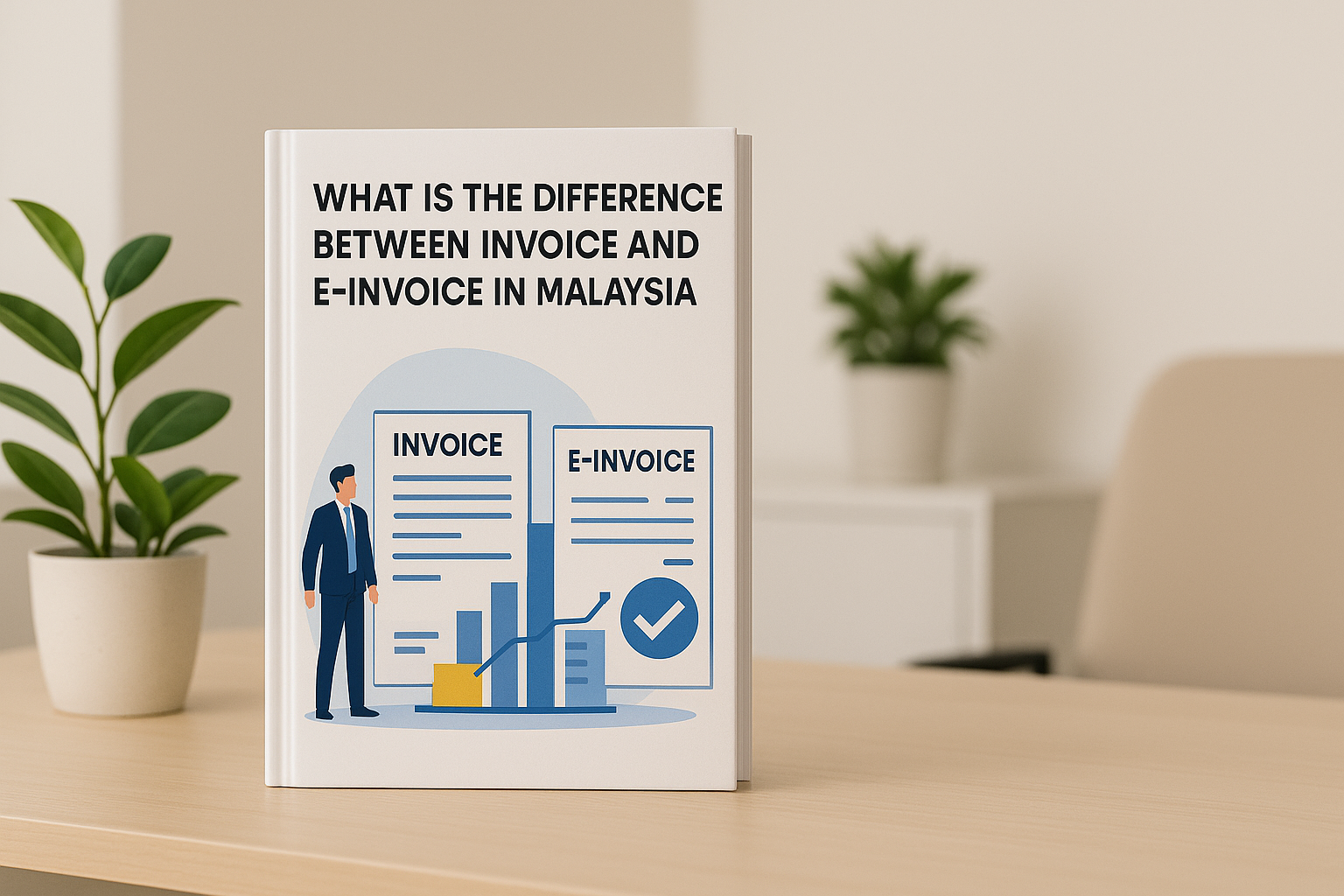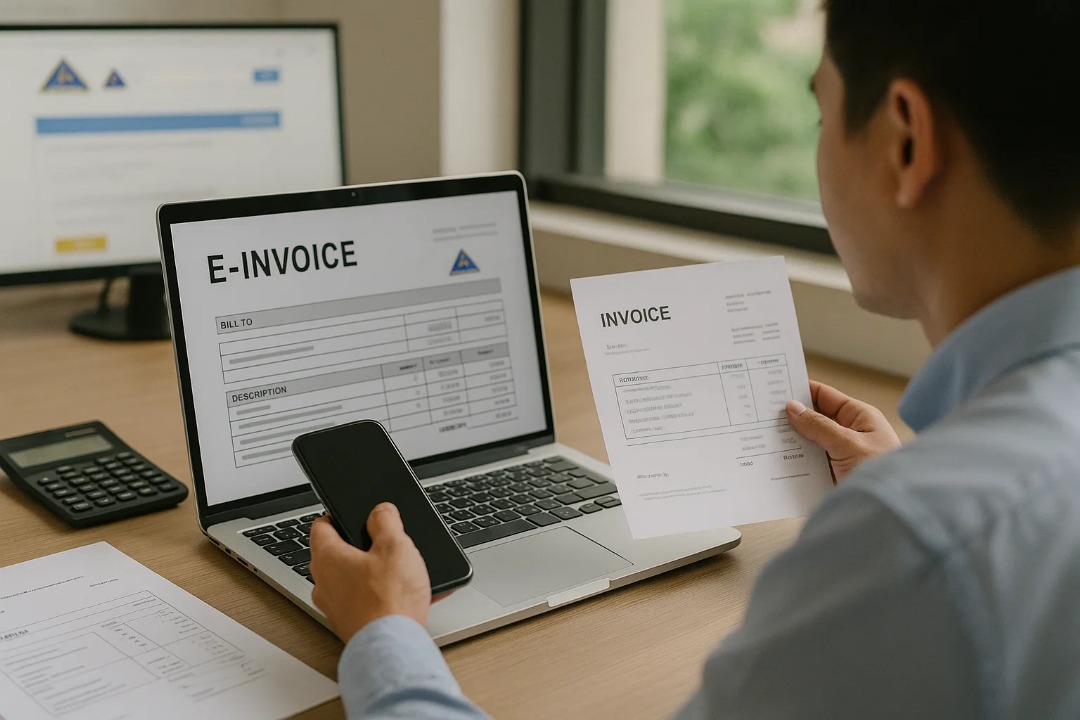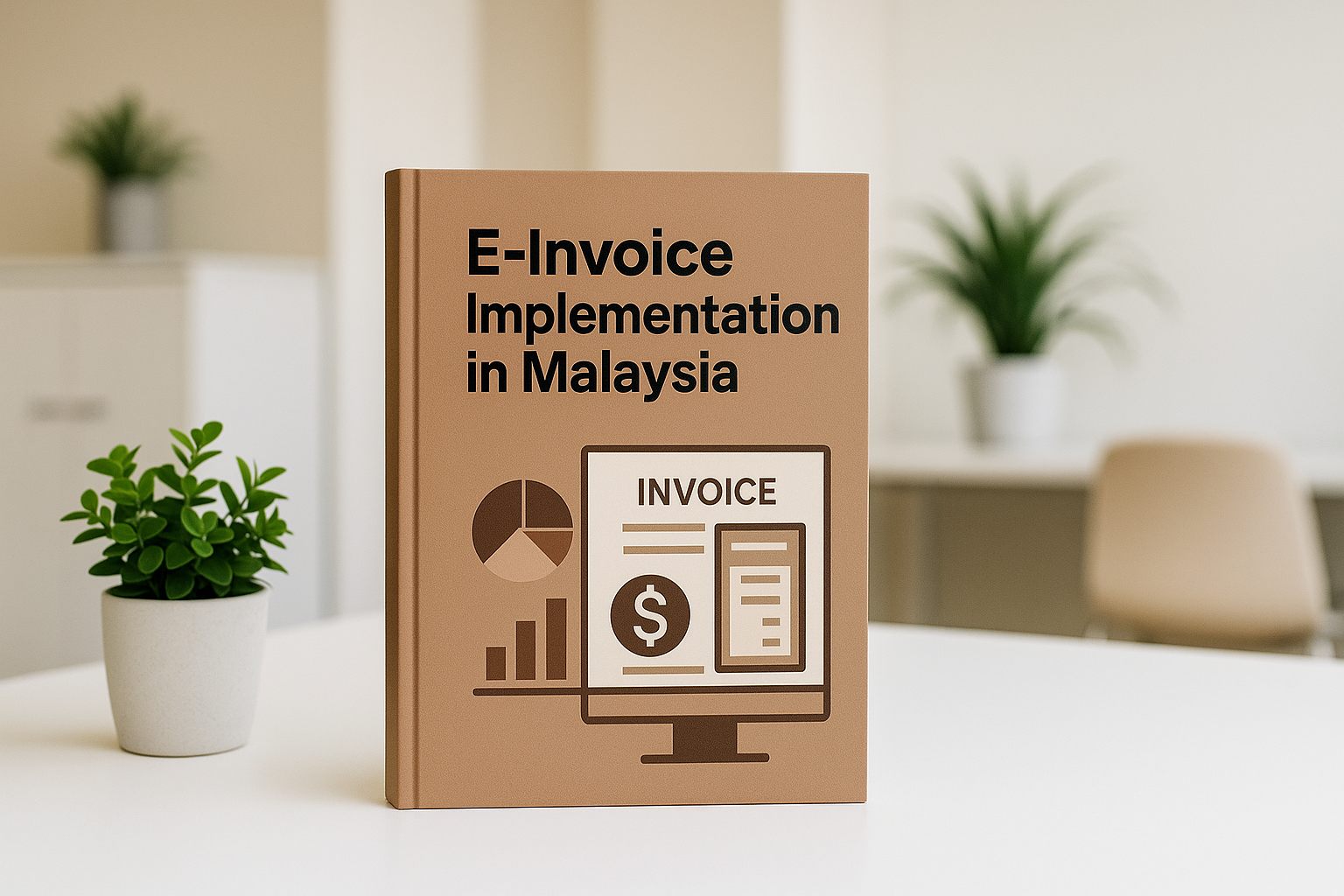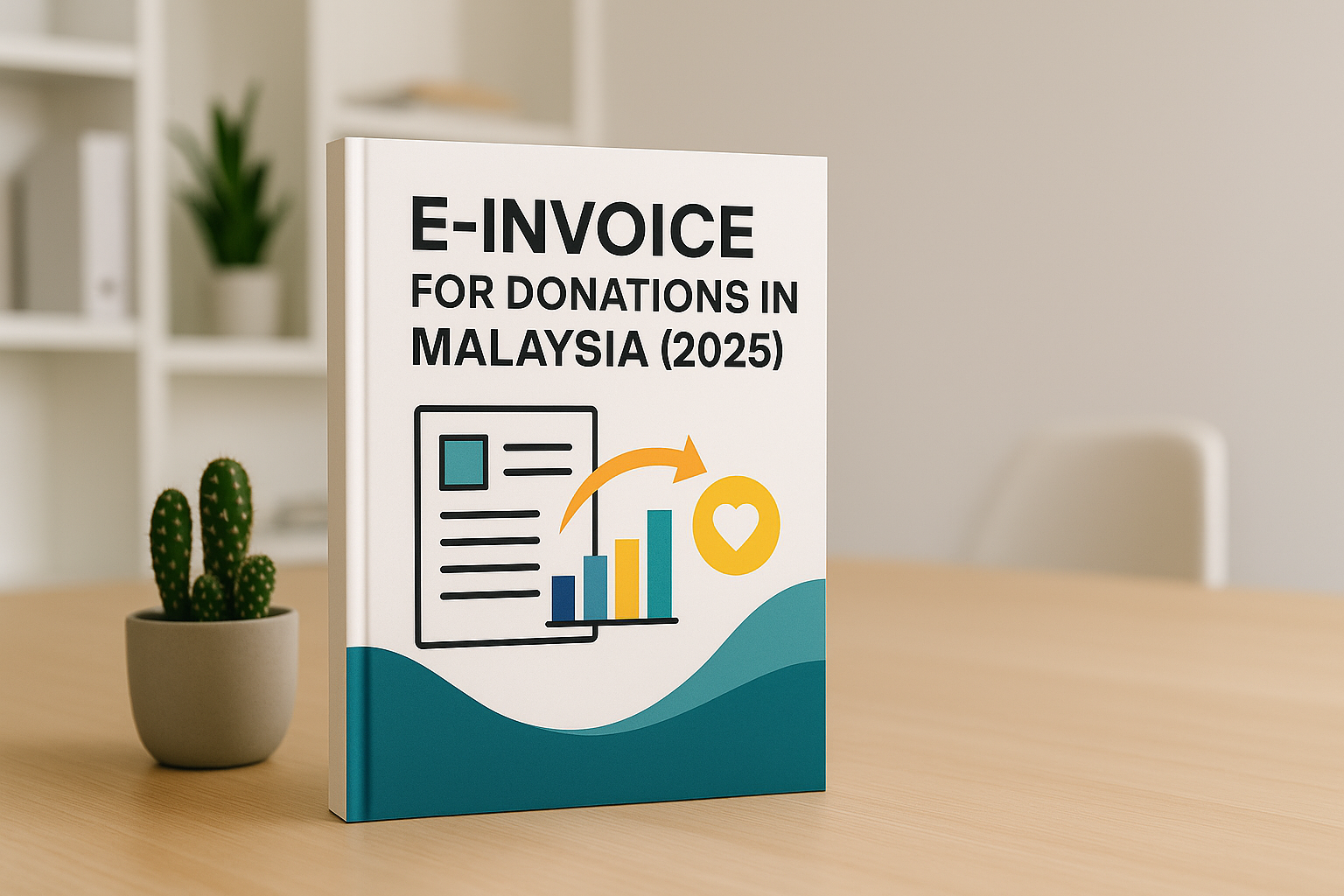What is the difference between invoice and e-invoice in Malaysia?
As businesses move toward digitalisation, understanding the difference between traditional invoices and e-Invoices is crucial—especially in Malaysia, where the system is directly integrated with LHDN/IRBM for tax validation, unlike Singapore’s earlier efficiency-focused approach. Another common misconception is that all donations are exempt; in reality, LHDN clarifies that while some donations fall outside the scope, approved institutions and specific projects must issue e-Invoices for monetary contributions.

What is a Traditional Invoice?
A traditional invoice is a paper-based document issued by a business to request payment for goods or services. It typically contains essential details such as:
- Business and client information
- Product or service descriptions
- Total amount due, including taxes
- Payment terms and due dates
In Malaysia, businesses have traditionally relied on these manual processes, but as the digital age progresses, these paper-based methods are becoming increasingly outdated, especially with the rise of automation and e-invoicing solutions.

Limitations of Traditional Invoices
- Prone to errors from manual data entry
- Slower payment cycles due to postal delays
- Higher operational costs (printing, postage, storage)
- Difficult to track and manage at scale
- Increased risk of fraud and duplication
What is an E-Invoice?
An e-invoice (electronic invoice) is a digital version of a traditional invoice. It holds the same information but is generated and stored electronically, making the process faster, more secure, and more compliant with tax regulations. E-invoices can be processed automatically, reducing errors and improving efficiency.
In Malaysia, e-invoices are mandatory for tax compliance, with businesses required to use the government’s MyInvois platform for validation before sending the invoice to the customer. The integration with LHDN/IRBM ensures real-time compliance with Sales and Service Tax (SST) regulations, a unique aspect of Malaysia’s e-invoicing system.

Key Differences Between Traditional Invoices and E-Invoices in Malaysia
Let’s dive deeper into the key differences between traditional and e-invoices, particularly in the context of Malaysia:
| Aspect | Traditional Invoice | E-Invoice |
|---|---|---|
| Format | Paper-based document | Digital, stored electronically |
| Issuance Method | Manually created, printed, and mailed | Automatically generated and transmitted electronically |
| Tax Compliance | Manual tracking of taxes | Automatically complies with SST regulations |
| Processing Speed | Slow due to manual entry and postal delays | Fast, automatic processing |
| Storage | Physical storage, prone to loss or damage | Digital storage, easy to access and backup |
| Security | Prone to fraud, loss, or duplication | More secure, encrypted, with audit trails |
| Cost | Printing, mailing, and storage costs | Reduced costs due to automation |
The Benefits of E-Invoicing in Malaysia
Key Advantages of E-Invoicing
Increased Efficiency
E-invoices speed up the invoicing process, eliminating manual data entry and the need for physical mailing, leading to faster payment cycles.
Cost-Effective
With e-invoices, businesses save on printing, postage, and storage costs. This allows more funds to be directed into other growth areas.
Tax Compliance
Malaysia’s LHDN/IRBM mandates e-invoicing as part of its SST compliance program. E-invoices are automatically formatted and validated according to tax regulations, ensuring businesses stay compliant.
Enhanced Security
E-invoicing systems use encryption and secure data transmission, reducing the risk of fraud and protecting sensitive information.
Environmental Impact
By moving away from paper-based invoices, businesses contribute to a greener environment by reducing paper waste.
E-Invoicing in Malaysia: The Unique Integration with LHDN
In Malaysia, the e-invoicing process is unique because it integrates directly with the LHDN/IRBM for tax verification. This ensures that businesses are complying with SST regulations before sending the invoice to the customer.
How Malaysia’s E-Invoicing Process Works
This system prevents fraudulent invoices and guarantees that businesses remain compliant with Malaysia’s tax laws.
Mandatory Implementation Timeline
- August 2024: Businesses with annual
- January 2025: All other businesses
- July 2025: Full implementation for all taxpayers
How E-Invoicing Differs from Other Countries: A Comparison with Singapore
While Malaysia’s e-invoicing system has tax compliance as its primary focus, other countries like Singapore have implemented e-invoicing in a different way. In Singapore, e-invoicing using the InvoiceNow system has been in place for years, but it doesn’t have the same real-time tax validation process as Malaysia.
E-Invoicing in Singapore: The PEPPOL Network
Singapore’s InvoiceNow system uses the PEPPOL (Pan-European Public Procurement Online) network to enable businesses to send and receive electronic invoices. The primary goal of e-invoicing in Singapore was to improve business-to-business (B2B) connectivity, not necessarily tax compliance.
- No Tax Integration: Unlike Malaysia, Singapore's e-invoicing system does not integrate directly with IRAS (Inland Revenue Authority of Singapore) for real-time tax validation.
- Focus on Efficiency: Singapore's initial e-invoicing rollout focused on enhancing business efficiency by automating the invoice exchange between companies, without initially including tax integration.
However, IRAS (the tax authority in Singapore) is gradually incorporating e-invoicing into the GST filing system. Starting in 2024, Singapore will begin mandating that businesses submit their e-invoices to IRAS as part of the GST filing process.
Comparison: Malaysia vs Singapore
| Feature | Malaysia | Singapore |
|---|---|---|
| Primary Focus | Tax Compliance (SST) & Government Integration | Business Efficiency & PEPPOL Network |
| Tax Authority Integration | Direct integration with LHDN/IRBM for clearance | No direct tax authority integration (GST filing via e-invoice starting in 2024) |
| Implementation | Mandatory e-invoicing with real-time validation | Voluntary e-invoicing, now moving towards mandatory GST integration |
| Platform | MyInvois (LHDN/IRBM) | InvoiceNow (IMDA/PEPPOL Network) |
Implementation Guide for Malaysian Businesses
Preparing for E-Invoicing Implementation
- Assess Current Systems: Evaluate if your accounting software is LHDN-compliant
- Train Your Team: Ensure staff understand the new e-invoicing process
- Update Processes: Modify your invoicing workflow to include LHDN validation
- Test the System: Conduct trial runs before the mandatory deadline
- Communicate with Partners: Inform customers and suppliers about the change
Required Data Fields for Malaysian E-Invoices
- Supplier and customer information (name, address, tax ID)
- Invoice number and issue date
- Description of goods/services
- Quantity, unit price, and total amount
- Tax amounts (SST) and total payable
- Payment information
Key Takeaways for Malaysian Businesses
- E-invoicing is mandatory with phased implementation from 2024
- LHDN validation is required before sending invoices to customers
- MyInvois is the official platform for e-invoice validation
- Proper implementation can lead to significant cost savings and efficiency gains
- Businesses should start preparing now to ensure smooth transition
Conclusion: E-Invoicing is the Future for Businesses in Malaysia
E-invoicing offers numerous benefits for businesses, from faster payment cycles to improved tax compliance. Malaysia’s unique integration with LHDN for real-time tax validation sets it apart from other countries like Singapore, which initially focused on B2B connectivity. Understanding these differences is essential for businesses to stay ahead of the curve, particularly if you operate in both regions.
Are you ready to implement e-invoicing for your business? AutoCount Accounting Software offers seamless integration with LHDN’s MyInvois system, ensuring compliance with Malaysia’s e-invoicing regulations. Contact us today to learn how we can help streamline your invoicing process and keep your business compliant with local laws.
Frequently Asked Questions
What's the difference between e-invoicing in Malaysia and Singapore?
Yes, e-invoicing is mandatory for businesses in Malaysia, and it must be validated by LHDN before sending the invoice to the customer. The implementation is being rolled out in phases based on business revenue.
How can AutoCount help my business with e-invoicing?
AutoCount Accounting Software offers full integration with LHDN’s MyInvois system, ensuring that your e-invoices are tax-compliant and processed efficiently. Our solution handles the entire validation process seamlessly within your existing accounting workflow.
What happens if my business doesn't comply with e-invoicing regulations?
Non-compliance with Malaysia’s e-invoicing mandate may result in penalties from LHDN, including fines and potential difficulties with tax filings. It’s essential to implement e-invoicing before the deadline for your business category.
Can small businesses handle the technical requirements of e-invoicing?
Yes, with user-friendly solutions like AutoCount, even small businesses can easily adapt to e-invoicing. The key is choosing software that simplifies the process and provides adequate support during implementation.
Learn E-Invoicing with Our Expert-Led Classes
Ready to master e-invoicing and streamline your business? Join our comprehensive class and get hands-on guidance!



